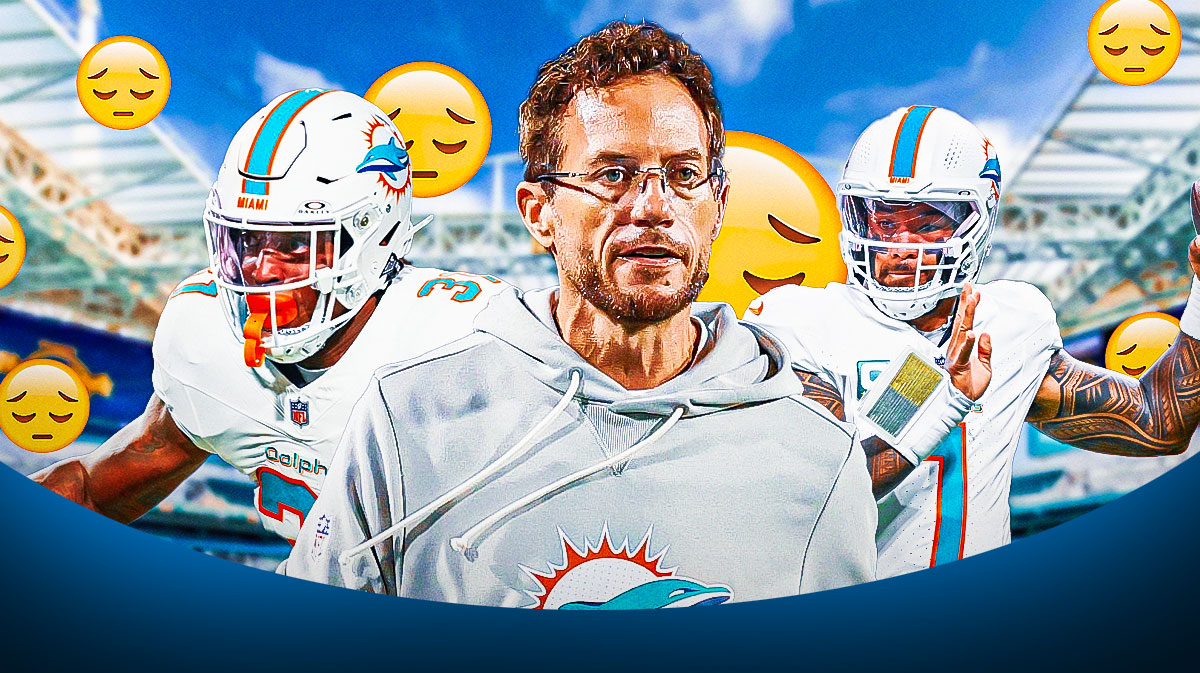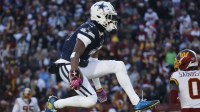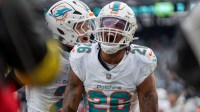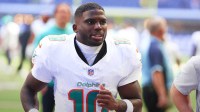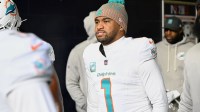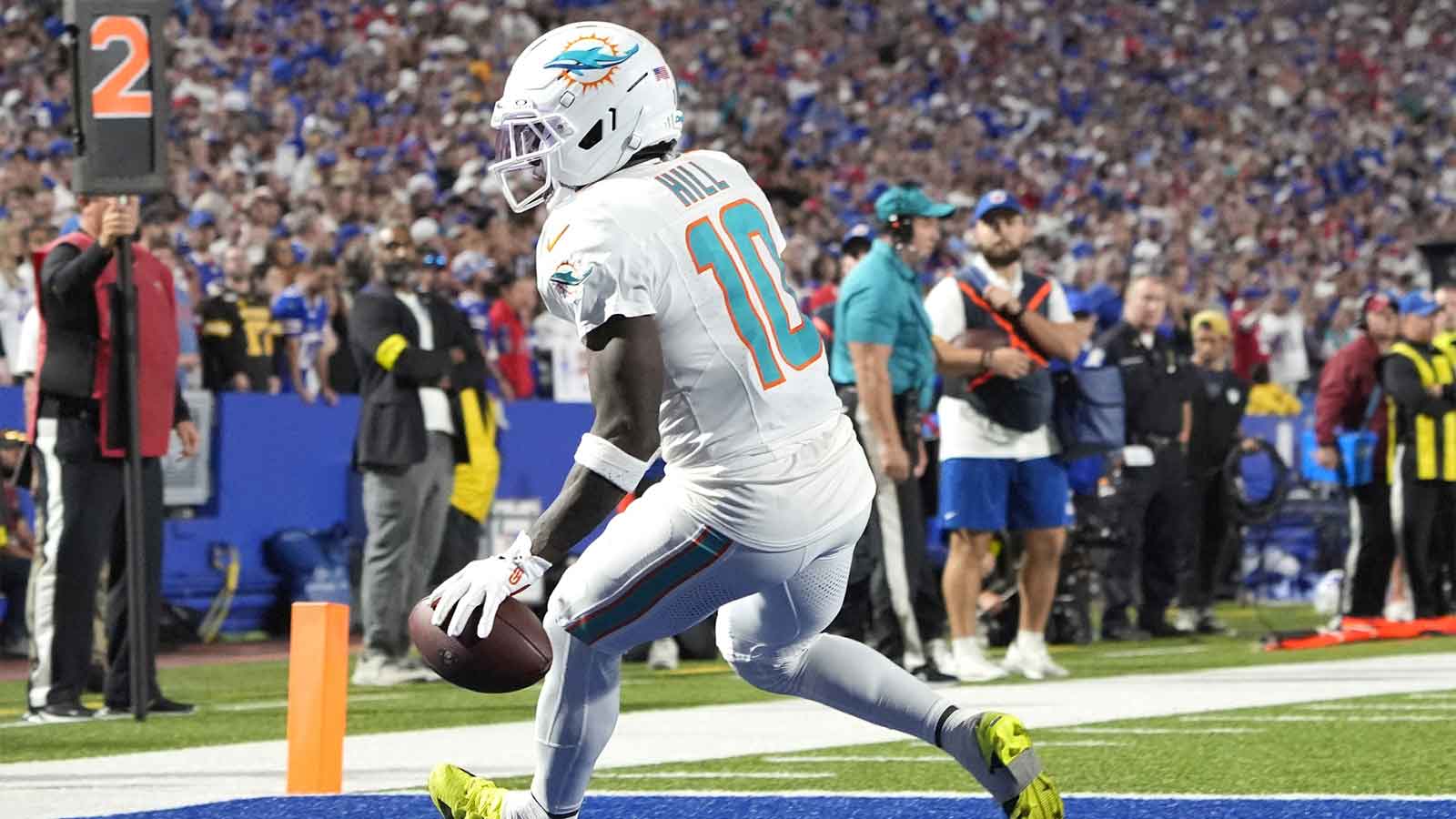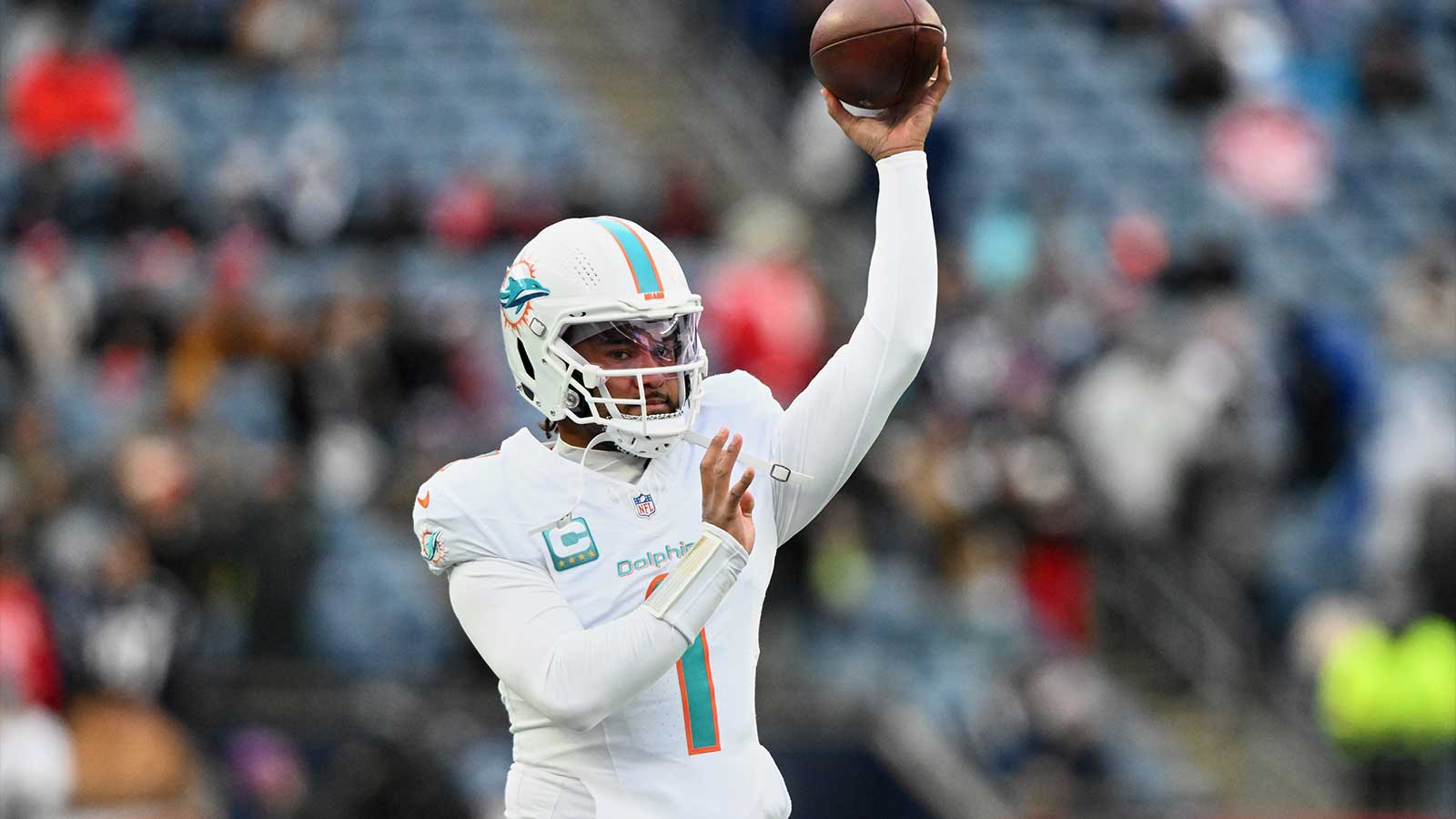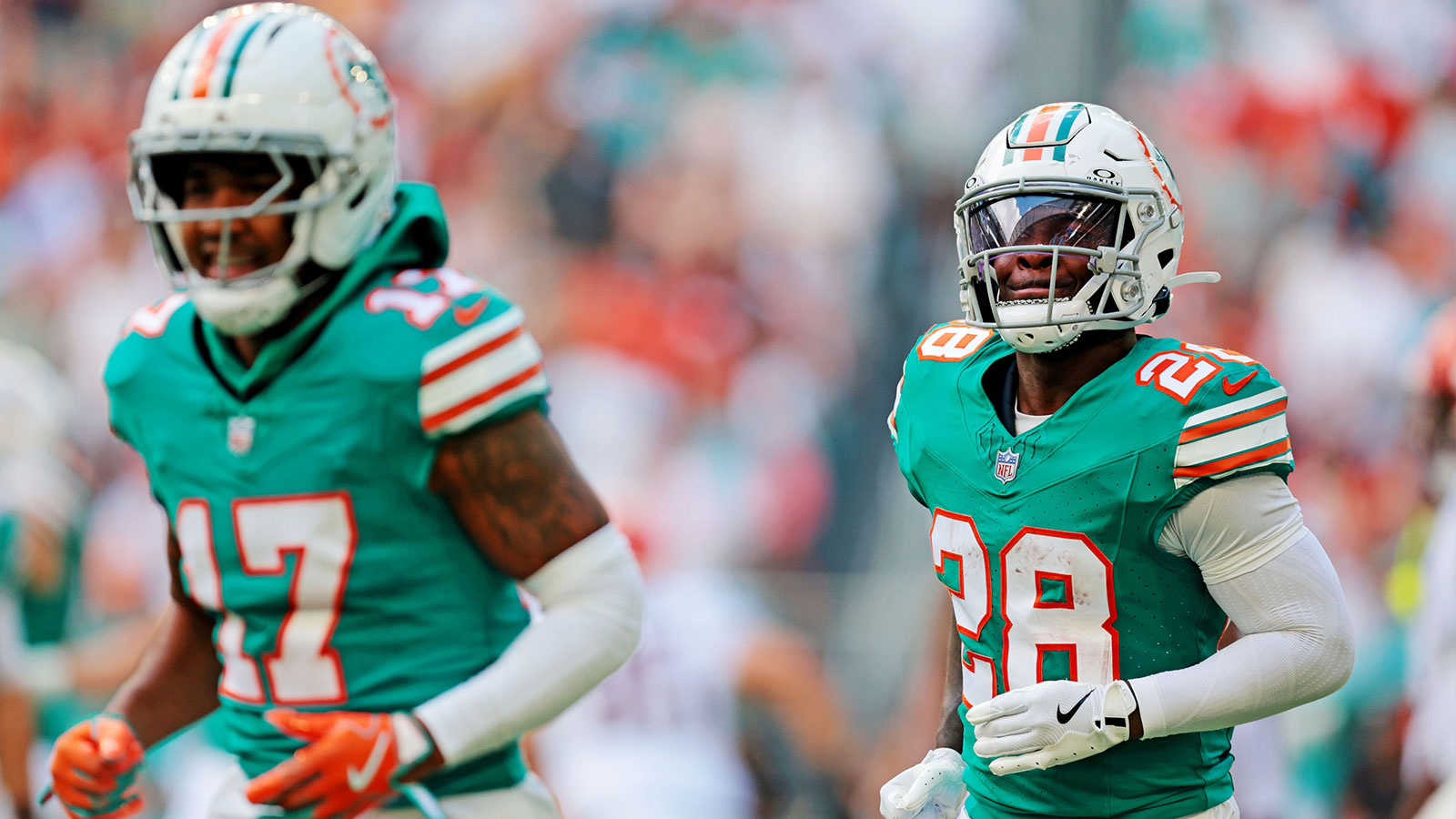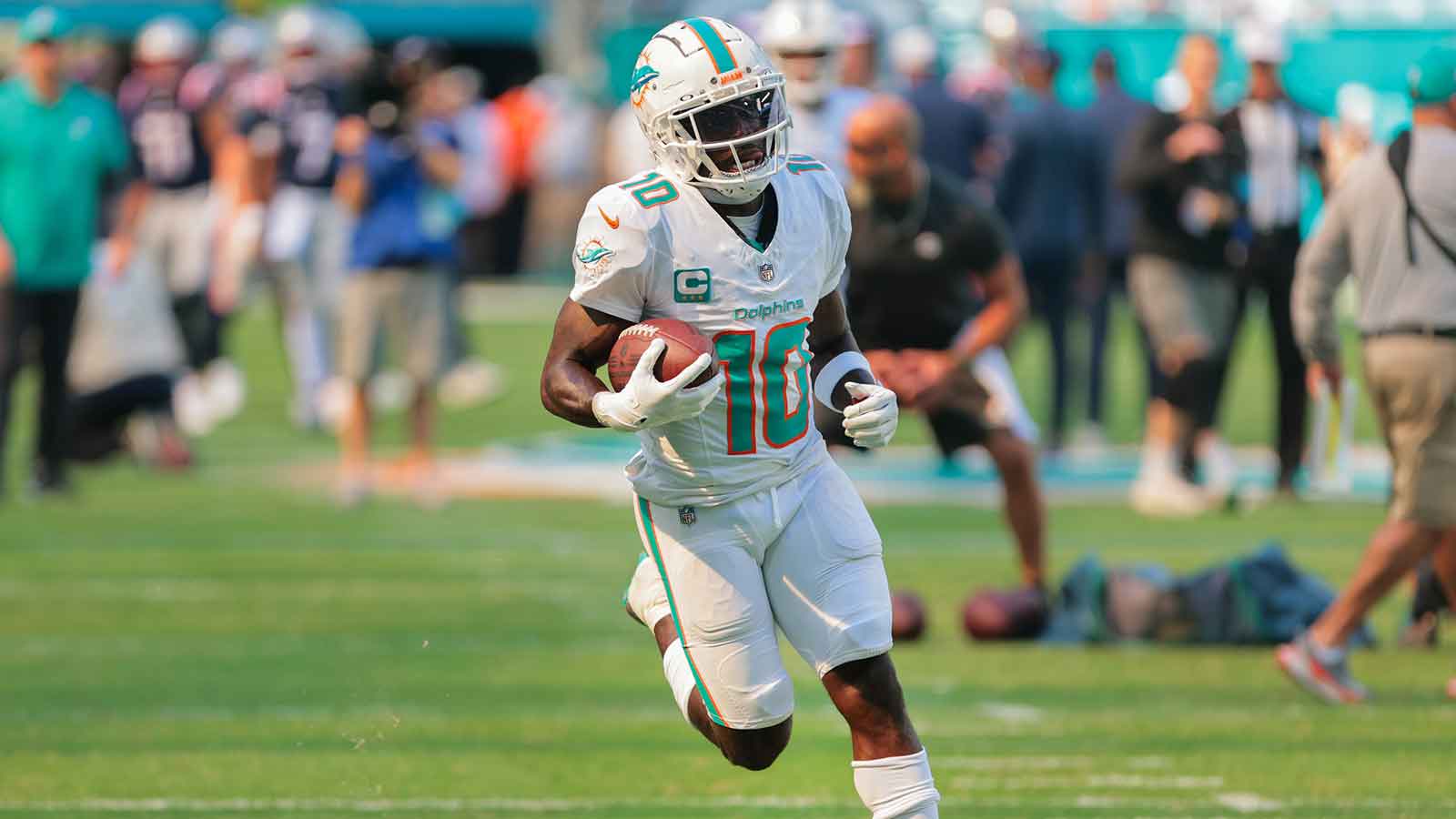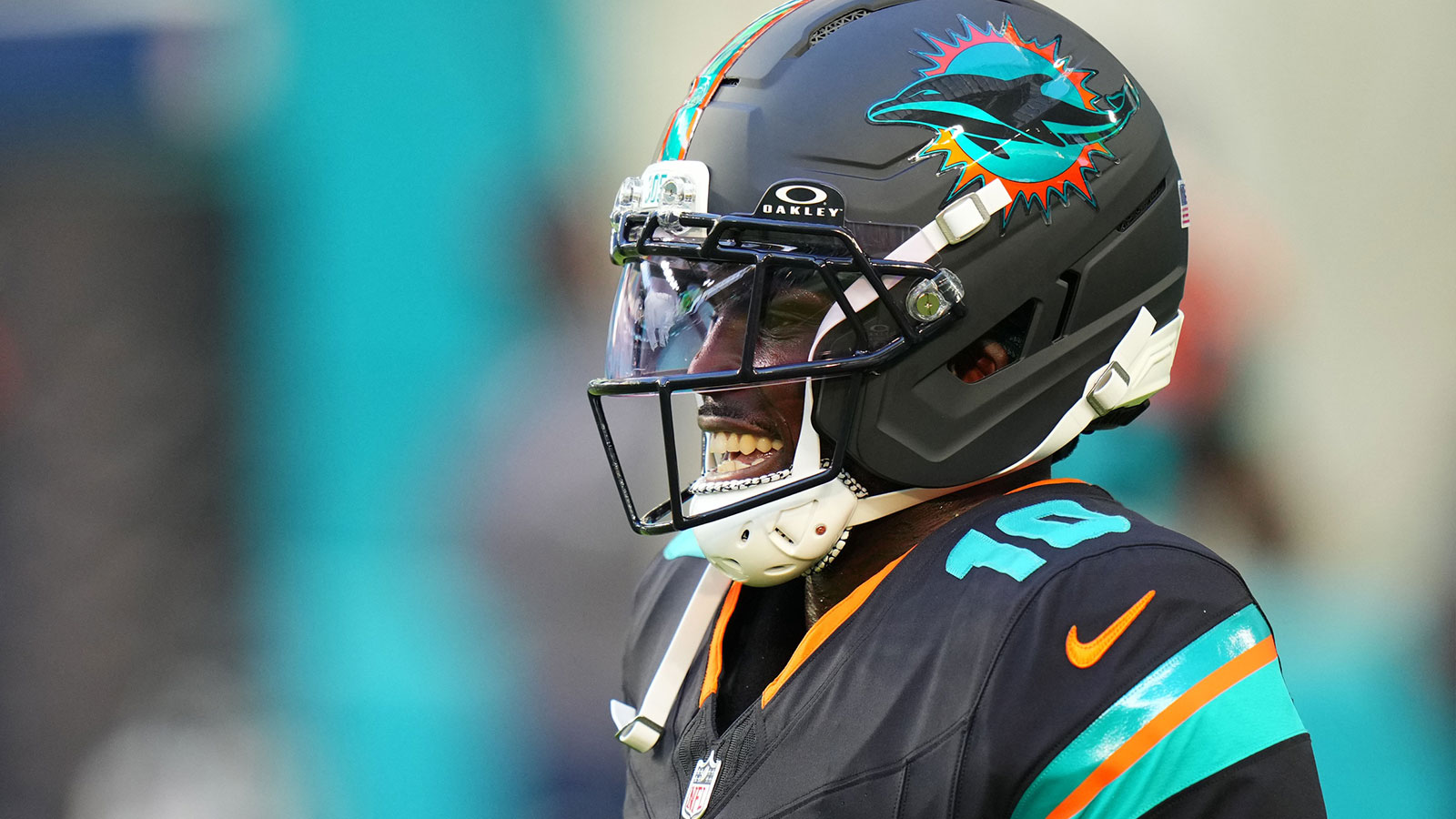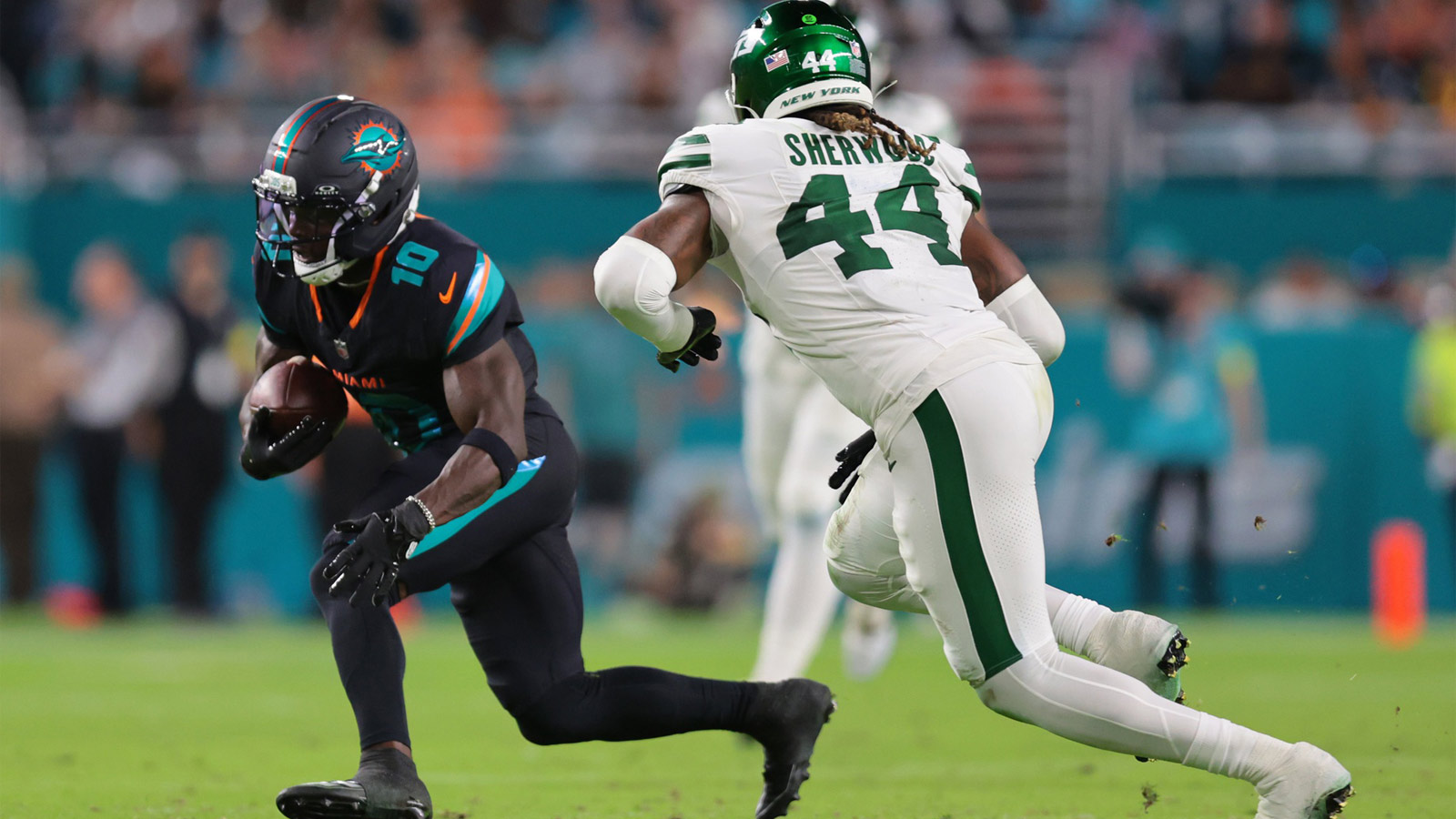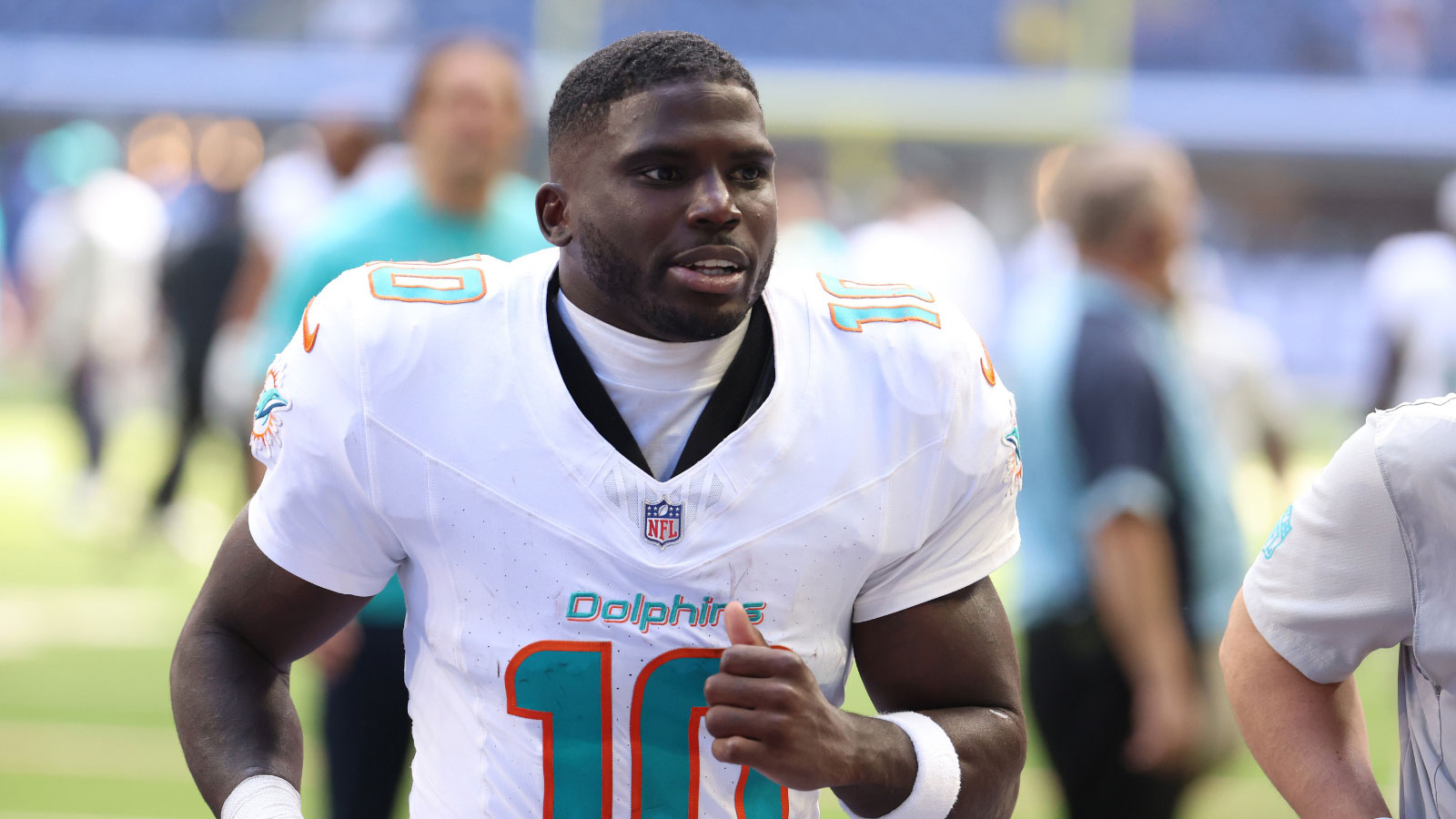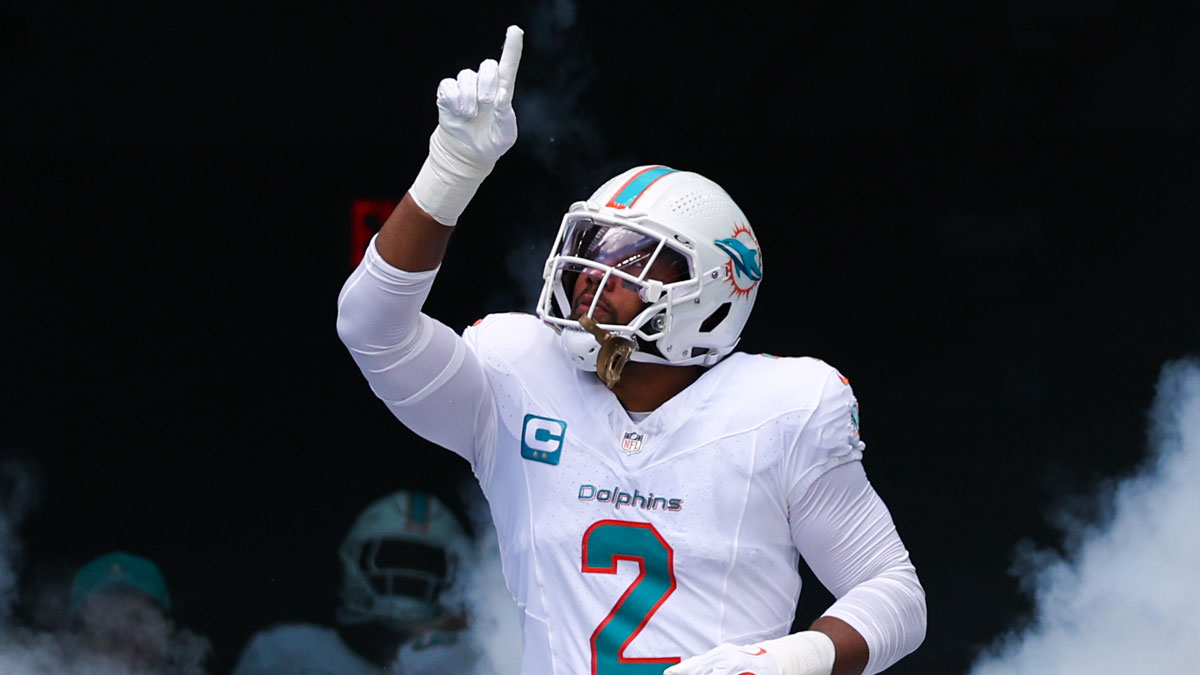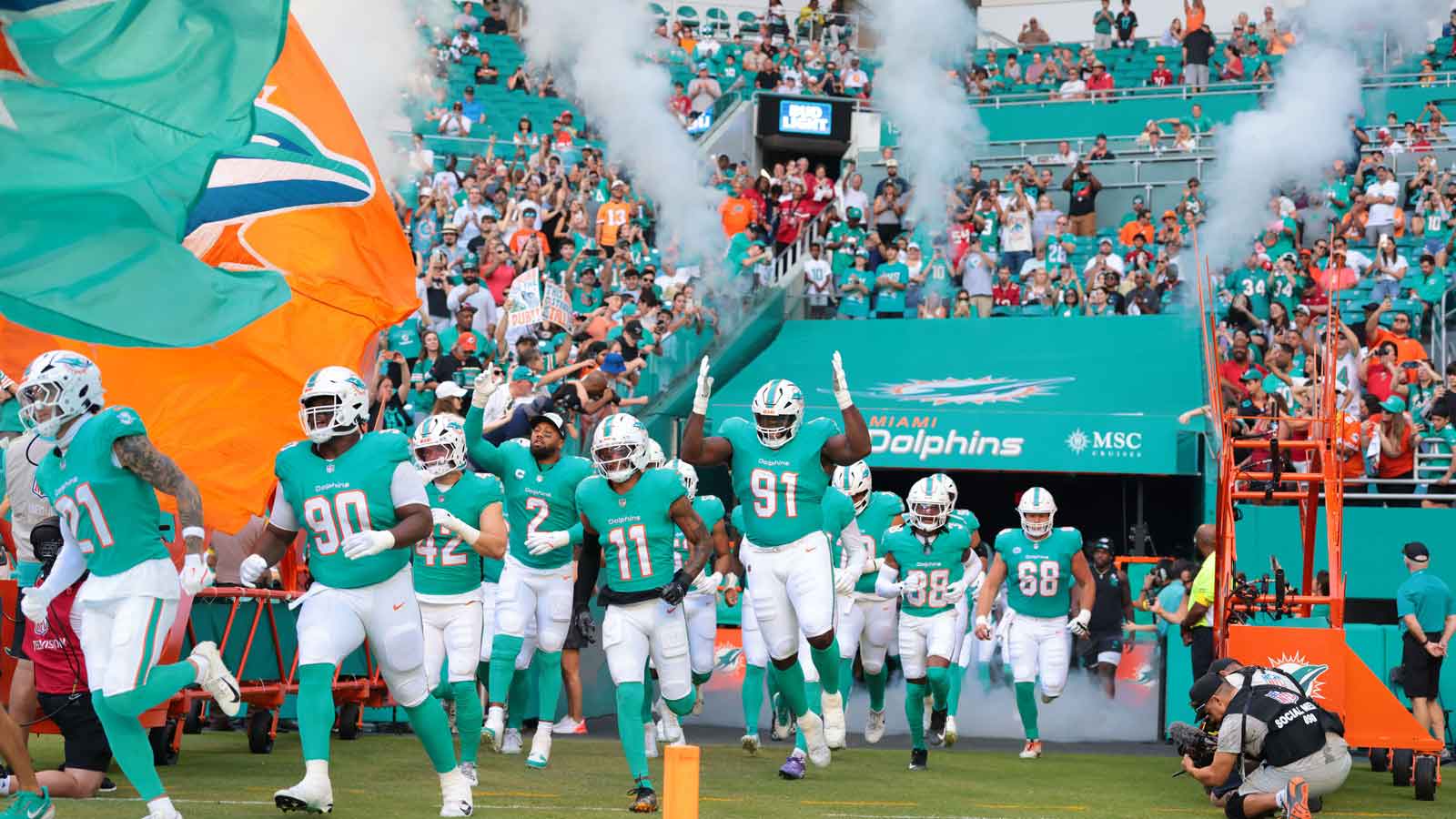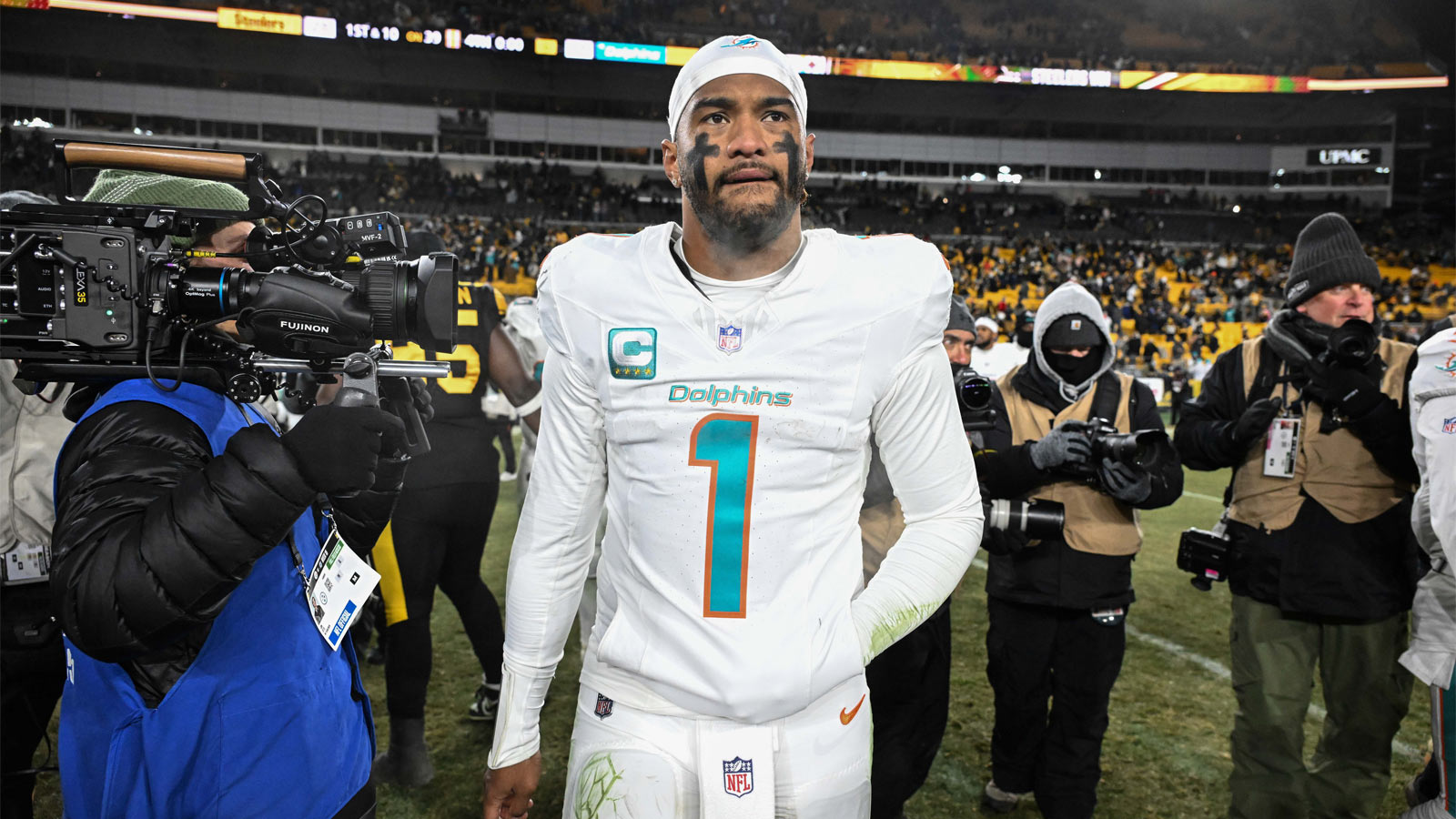The Miami Dolphins suffered one of their most embarrassing defeats of the season on Thursday night. Miami lost 28-6 against Baltimore in a game where they simply gave up in the second half. It was one of the worst possible performances for the Dolphins during an absolutely crucial point of their season.
But now Miami is 2-7 and the fans have had enough. They repeatedly asserted themselves, loudly booing and leaving the game early in droves.
Dolphins head coach Mike McDaniel spoke honestly about fans booing during Thursday's ugly defeat.
“You want to dictate the terms. You want to fix stuff,” McDaniel said after the game per ESPN. “That sucks. All of that does. But it's a pretty consistent formula of — fans enjoy winning. Our expectation is that we have to do that work and do the right things for fans to enjoy the experience. Unfortunately we didn't do that tonight, so we've got to get back to work to give them something to cheer about.”
But who is most to blame for Miami's latest defeat? And is it officially time to declare the 2025 season a failure for the Dolphins?
Below we will explore which Dolphins players were most to blame for Thursday's painful loss against the Ravens.
Tua Tagovailoa, Dolphins offense couldn't put together a complete drive all night

The entire offensive operation in Miami was suspect on Thursday night.
It all starts with the quarterback. Tua Tagovailoa played an okay game, but he did not put his team in a position to succeed often enough.
Tua went 25-of-40 for 261 passing yards and an interception. He was also sacked twice.
But don't get me wrong, Tua is far from the only Dolphins offensive player to blame for their six-point outing. In fact, it always seemed to be someone different screwing up.
Let's talk about Tahj Washington first. The wide receiver lost a fumble on Miami's four-yard line in the first half. That led to a Mark Andrews touchdown on the next possession.
Miami bounced back on the next drive and got into scoring range thanks to some nice De'Von Achane runs. However, a false start penalty by Larry Borom on fourth-and-one forced the Dolphins to attempt a field goal instead of going for it deep in Ravens territory. Another drive stalled.
To add insult to injury, Tagovailoa later admitted that the presence of Ravens fans in Hard Rock Stadium contributed to Borom's penalty.
The dysfunction lingered into the fourth quarter. The Dolphins were on the move again, sustaining a long drive thanks to multiple fourth-down conversions. But this time it was Malik Washington who fumbled the ball away.
It always feels like a cop-out to suggest that an entire unit lost the game for a team. But it really was a team effort by Miami's offense to short-circuit all of these drives.
Ollie Gordon's costly mistake, or bad call by refs, stalled Dolphins in second quarter
One pivotal play can be blamed on either RB Ollie Gordon II or the referees. It all depends on how you interpret what happened on the play.
The controversial play took place in the second quarter. Tagovailoa completed a 36-yard pass to Jaylen Waddle, advancing the ball all the way down to Baltimore's seven-yard line. But there was a flag on the play.
The officials called a tripping penalty on Gordon, who fell down while dropping back into pass protection.
I'll let you be the judge, but this clearly looks like a player simply falling down and not a deliberate attempt to trip a player. Even Prime Video's rules analyst Terry McAulay disagreed with the call on the field.
Regardless of who deserves the blame here, the facts remain the same. The penalty erased a huge play that could have changed the game for the Dolphins.
Miami looked completely defeated after halftime, and this sequence could have been the straw that broke the camel's back.
Dolphins defense could not stop Ravens' simple offensive strategy
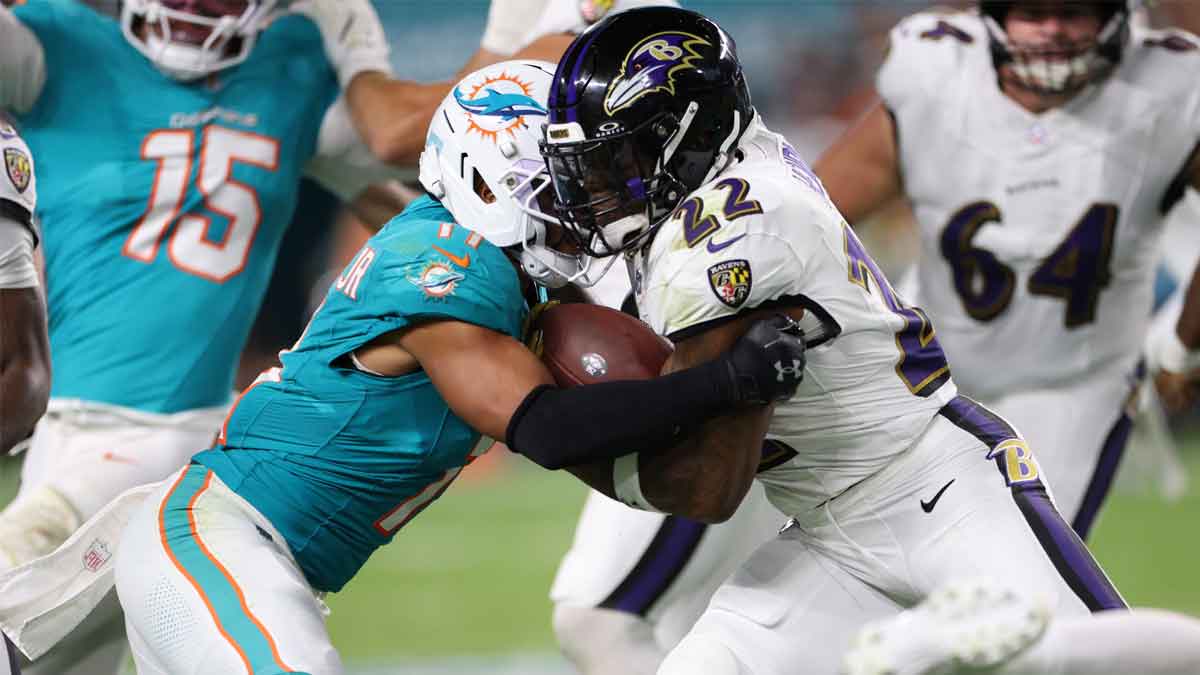
The Ravens deployed an “if it ain't broke, don't fix it” approach on offense against the Dolphins.
I predicted that Henry would have a big game against Miami on TNF. King Henry did not rip off any runs of 70+ rushing yards, but he was still the engine of Baltimore's offense.
Henry ran all over the Dolphins, logging 19 carries for 119 rushing yards. That is good for 6.3 yards per carry.
The Ravens did not need Henry to run up and down the field to beat the Dolphins. Instead, Baltimore simply possessed the football longer than Miami and slowly wore down their defense.
A simple plan, but incredibly effective.
Miami's run defense has been a problem for the entire season. The Dolphins now average 145.6 rushing yards allowed per game this season, one of the worst rates in the NFL.
I don't want to let Miami's coverage unit off the hook either. After all, they gave up a handful of 20+ yard receptions. But it was the running game that won the game for the Ravens more than anything else.
Ultimately the Ravens are a tough team to stop when at the height of their powers. But the Dolphins have shown a pattern of being unable to stop the run this season.
That is a losing formula, even in today's pass-happy NFL.

